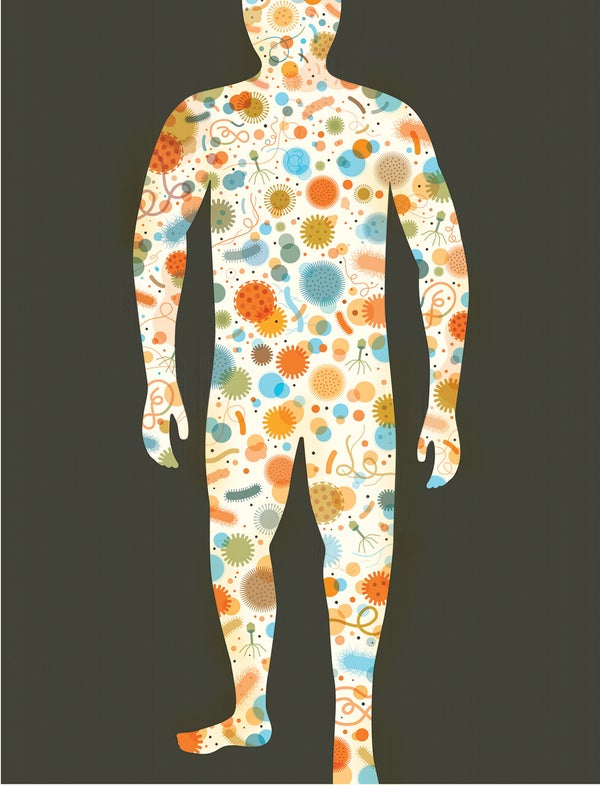The cause of Alzheimer’s disease may reside inside your mouth, specifically a bacteria called Porphyromonas gingivalis. This bacteria produces toxins known as gingipains, which have been found to accumulate in the brains of Alzheimer’s patients.
The gingipains degrade human proteins, leading to the formation of misfolded proteins that contribute to the development of the disease. This discovery has opened up new possibilities for developing chemical compounds that can neutralize gingipains and potentially treat Alzheimer’s.
The Link Between Oral Bacteria And Alzheimer’s Disease
New evidence suggests that the cause of Alzheimer’s disease may reside inside the mouth. Scientists have found a link between oral bacteria, specifically Porphyromonas gingivalis, and the accumulation of misfolded proteins in the brain, a hallmark of Alzheimer’s. This discovery opens up new possibilities for prevention and treatment strategies targeting oral health.
Introduction To The Research Findings
Recent scientific research has uncovered a fascinating link between oral bacteria and Alzheimer’s disease. It appears that the cause of this debilitating disease may be lurking right inside our mouths. Evidence suggests that a specific bacterium called Porphyromonas gingivalis, commonly found in cases of periodontal disease, doesn’t just stay in the oral cavity, but actually travels to the brain. This discovery has shed light on how oral health can impact brain health, and potentially offers new avenues for understanding and treating Alzheimer’s disease.
Accumulation Of Gingipains In The Brain
At the heart of this connection between oral bacteria and Alzheimer’s lies the production of toxins called gingipains by Porphyromonas gingivalis. These toxins have been found to accumulate in the brains of Alzheimer’s patients. Gingipains are substances that degrade human proteins, leading to the formation of misfolded proteins, a known hallmark of Alzheimer’s disease. This accumulation of gingipains and subsequent protein misfolding can result in the death of brain cells and the deterioration of cognitive function.
Chemical Compounds To Neutralize Gingipains
While the presence of gingipains in the brain is concerning, scientists have made a significant breakthrough in the development of chemical compounds that can neutralize these toxins. This opens up the exciting possibility of halting or even reversing the progression of Alzheimer’s disease. By targeting and inhibiting the effects of gingipains, these compounds have the potential to protect brain cells from damage and reduce the misfolding of proteins.
| Advantages of Research Findings | Implications for Alzheimer’s Treatment |
|---|---|
|
|
These research findings have profound implications for the understanding and treatment of Alzheimer’s disease. By recognizing the link between oral bacteria and the development of this neurodegenerative condition, we can now explore new strategies that target the root cause of the disease. It also emphasizes the importance of maintaining good oral hygiene practices as a means of potentially mitigating the risk of Alzheimer’s. As we dive deeper into the relationship between oral health and brain health, these findings have the potential to revolutionize our approach to Alzheimer’s treatment and prevention.

Credit: www.alzra.org
Other Factors Contributing To Alzheimer’s Disease
While the link between oral health and Alzheimer’s disease is receiving increasing attention in the scientific community, it is essential to be aware that there are various other factors that can contribute to the development of this devastating condition. Understanding these additional factors is crucial for developing effective prevention and treatment strategies.
Age-related Changes In The Brain
As we age, our brain goes through natural changes that can increase the risk of developing Alzheimer’s disease. These age-related changes include the accumulation of plaques and tangles in the brain, which interfere with the communication between brain cells. Additionally, the brain’s ability to repair and regenerate cells decreases with age, making it more vulnerable to damage and cognitive decline.
Genetic Factors
Genetics also play a significant role in Alzheimer’s disease. Certain gene mutations have been associated with an increased risk of developing this condition. For example, the apolipoprotein E (APOE) gene is known to influence the risk and age of onset of Alzheimer’s disease. While having these genetic markers does not guarantee the development of the disease, they can significantly contribute to its likelihood.
Environmental And Lifestyle Factors
Environmental and lifestyle factors can greatly impact the risk of developing Alzheimer’s disease. Several studies have found associations between certain lifestyle choices and a higher risk of developing this condition. For instance, sedentary behavior, poor diet, smoking, excessive alcohol consumption, and chronic stress have all been linked to increased Alzheimer’s risk. On the other hand, engaging in regular physical exercise, maintaining a healthy diet rich in fruits and vegetables, and staying mentally active may help reduce the risk of developing the disease.
It is important to note that the interplay between these factors is complex, and their exact contribution to the development of Alzheimer’s disease is still being studied. Nonetheless, taking proactive steps to maintain good oral health, along with addressing these other risk factors, can significantly reduce the likelihood of developing this debilitating condition.
The Role Of Proteins In Alzheimer’s Disease
The role of proteins in Alzheimer’s Disease is critical in understanding the underlying causes of this prevalent neurodegenerative disorder. Two key proteins, amyloid and tau, play a significant role in the development and progression of the disease. Their abnormal build-up and formation of plaques and tangles pose severe impacts on brain cells.
Abnormal Build-up Of Amyloid Proteins
The abnormal build-up of amyloid proteins in and around brain cells is believed to be one of the main causes of Alzheimer’s Disease. Amyloid proteins are derived from the breakdown of a larger protein called amyloid precursor protein (APP). In Alzheimer’s patients, these amyloid proteins tend to clump together, forming toxic plaques that disrupt normal brain function.
Formation Of Plaques And Tangles
The formation of plaques and tangles is closely associated with the progression of Alzheimer’s Disease. Plaques refer to the clumps of amyloid proteins that accumulate outside brain cells, while tangles are twisted fibers made up of tau proteins that develop inside brain cells. These plaques and tangles interfere with communication between brain cells, leading to the deterioration of cognitive functions.
Impact On Brain Cells
The abnormal build-up of amyloid proteins and the formation of plaques and tangles have detrimental effects on brain cells. The accumulation of amyloid plaques and tau tangles disrupts the normal functioning of neurons, leading to their degeneration and eventual death. This progressive damage to brain cells causes memory loss, cognitive decline, and other symptoms associated with Alzheimer’s Disease.

Credit: www.scientificamerican.com

Credit: www.amazon.com
Frequently Asked Questions Of The Cause Of Alzheimer’s Disease Could Be Lurking Inside Your Mouth, Science Revealed
What Is The Cause Of Alzheimer’s May Reside Inside Your Mouth?
Recent scientific research suggests that the cause of Alzheimer’s disease may reside inside the mouth. Specifically, a bacteria called Porphyromonas gingivalis produces toxins that can accumulate in the brain and degrade human proteins, leading to the development of Alzheimer’s. This discovery offers new insights into potential treatments for the disease.
What Have Scientists Discovered About The Cause Of Alzheimer’s Disease?
Scientists have discovered that oral bacteria, specifically a species called Porphyromonas gingivalis, may be responsible for Alzheimer’s disease. This bacteria produces toxins that accumulate in the brain and degrade human proteins, leading to the formation of misfolded proteins. This finding suggests a potential link between oral hygiene and the development of Alzheimer’s.
What Is The Real Cause Of Alzheimer’s Disease?
Alzheimer’s disease is caused by the abnormal buildup of proteins called amyloid and tau in the brain, forming plaques and tangles. Recent studies suggest that oral bacteria, specifically Porphyromonas gingivalis, can contribute to the development of Alzheimer’s by releasing toxins called gingipains that degrade proteins in the brain.
Maintaining good oral hygiene may be crucial in preventing Alzheimer’s disease.
Can Oral Hygiene Cause Alzheimer’s?
Poor oral hygiene has been linked to Alzheimer’s disease. Bacteria called Porphyromonas gingivalis can travel from the mouth to the brain, releasing enzymes that destroy nerve cells and lead to memory loss. Maintaining good oral health is important in reducing the risk of Alzheimer’s.
Conclusion
In light of recent scientific research, it has been discovered that the cause of Alzheimer’s disease may be lurking inside your mouth. Specifically, a certain bacteria called Porphyromonas gingivalis has been found to produce toxins known as gingipains, which can accumulate in the brain of Alzheimer’s patients.
These toxins degrade human proteins and contribute to the misfolded proteins associated with the disease. However, there is hope as researchers have developed chemical compounds to neutralize gingipains. This revelation emphasizes the importance of maintaining good oral hygiene to potentially reduce the risk of Alzheimer’s disease.
